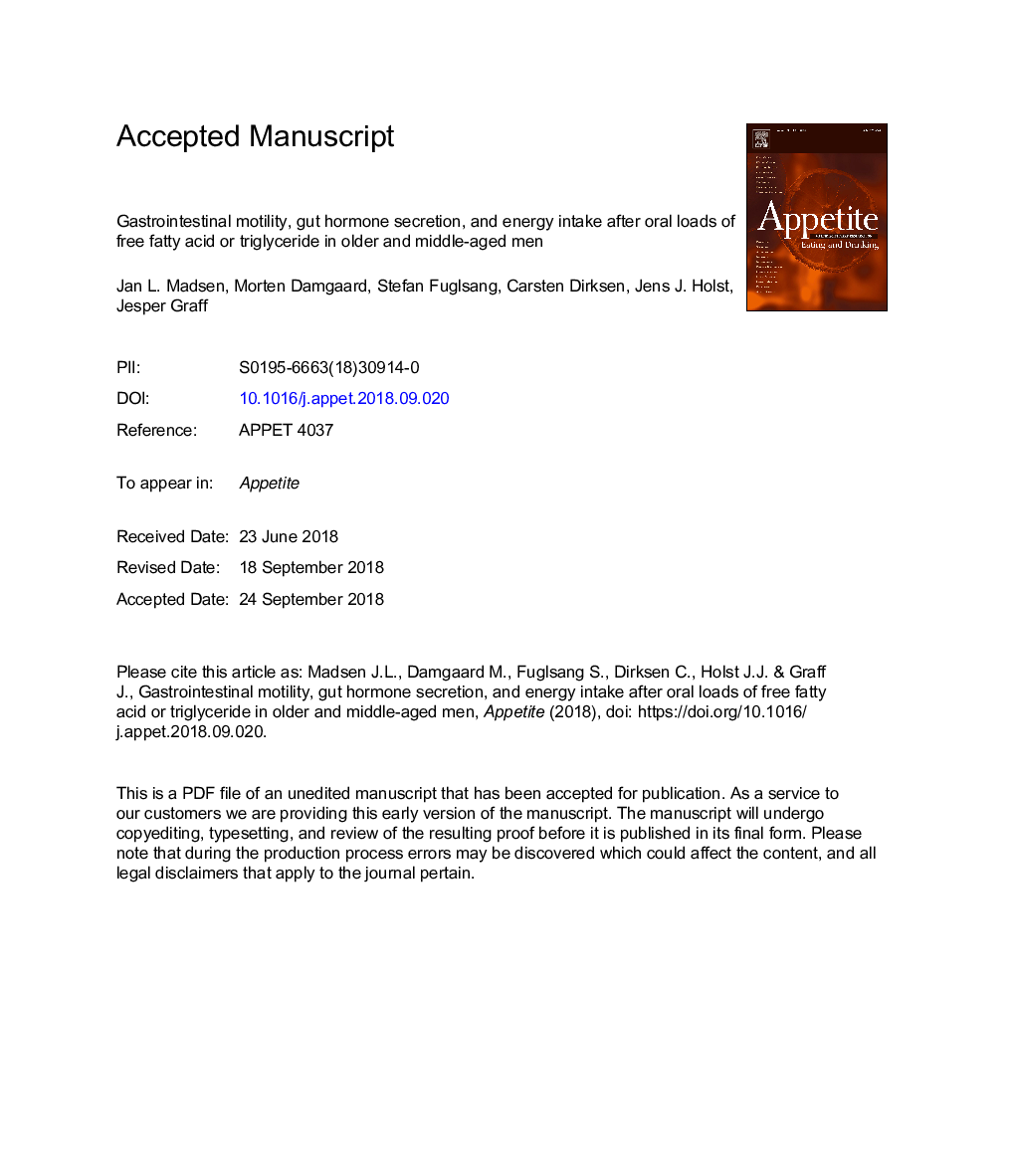| Article ID | Journal | Published Year | Pages | File Type |
|---|---|---|---|---|
| 11020568 | Appetite | 2019 | 21 Pages |
Abstract
In young individuals, oral free fatty acid delays gastric emptying, promotes gut hormone release, and reduces energy intake more than an isocaloric load of triglyceride does. The objective of this study was to compare the effects of the free fatty acid oleic acid (OA) and the triglyceride olive oil (OO) on gastrointestinal motility, gut hormone secretion, and energy intake in older and middle-aged healthy volunteers. In a double-blind, randomized, cross-over, study 10 older (age 83.0â¯Â±â¯3.4 (meanâ¯Â±â¯SD) years) and 10 middle-aged (age 43.1â¯Â±â¯8.9 years) men were examined on two occasions to evaluate the effect of isocaloric and isovolaemic loads of radiolabelled OA or OO on gastric emptying, oro-caecal transit, glucagon-like peptide-1 (GLP-1) and peptide YY (PYY) secretions, and energy intake. Gastric emptying was slower in older than in middle-aged men (lipid pâ¯<â¯0.001, water pâ¯=â¯0.010), while no difference between these groups was found for oro-caecal transit. In comparison with OO, OA caused slower gastric emptying (lipid pâ¯<â¯0.001, water pâ¯=â¯0.020) and faster oro-caecal transit (pâ¯=â¯0.025). Postprandial secretion of GLP-1 and PYY was comparable for older and middle-aged men, as well as for OA and OO. Older men ingested less energy than middle-aged men did (pâ¯<â¯0.001) and their energy intake was lower after OA than OO (pâ¯=â¯0.002). Thus, gastric emptying of an oral lipid load is slower in older than in middle-aged men; gastric emptying is slower and oro-caecal transit faster after OA than OO in both age groups; and older men ingest less energy than middle-aged men and less energy after OA than OO.
Related Topics
Life Sciences
Agricultural and Biological Sciences
Food Science
Authors
Jan L. Madsen, Morten Damgaard, Stefan Fuglsang, Carsten Dirksen, Jens J. Holst, Jesper Graff,
